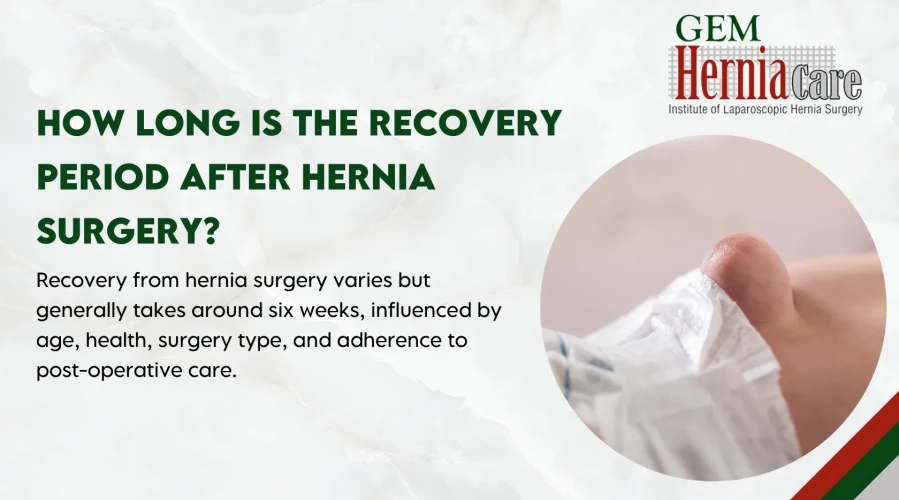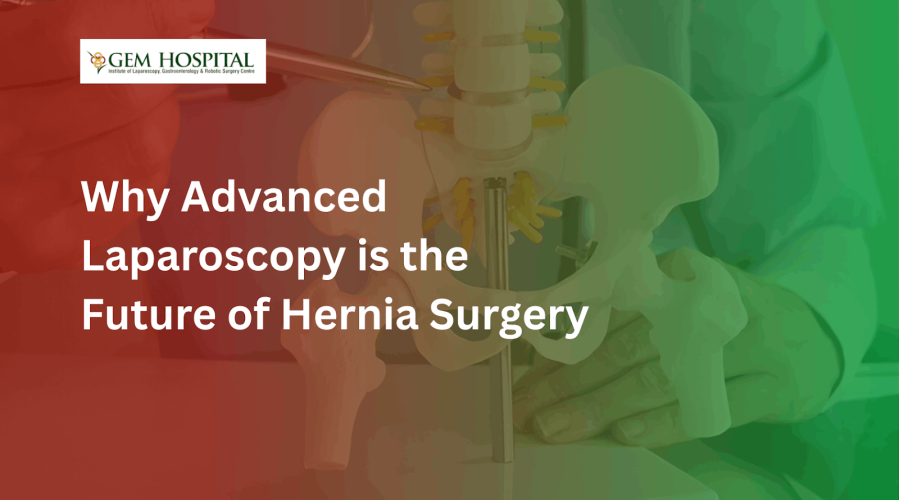Discover why advanced piles care in Chennai is the best choice, offering expert specialists, modern laser treatments, safe procedures, and faster recovery.
How Long Is the Recovery Period After Hernia Surgery?

Recovering from hernia surgery is a crucial phase that demands understanding and patience. This blog aims to guide you through the expected recovery timeline, helping you return to your daily activities with confidence and ease.
Understanding Hernia Surgery
Hernia surgery is a common procedure aimed at repairing the weakening of muscle or tissue which allows organs, like intestines, to protrude through. There are several types of hernia surgeries, such as open surgery and laparoscopic surgery, each differing slightly in approach but generally requiring similar recovery protocols. Knowing what your surgery entails can help set realistic expectations for the recovery period
Factors Influencing Recovery Time
Recovery from hernia surgery isn't a one-size-fits-all scenario. Several factors can influence how quickly and smoothly your recovery process goes:
Age and Overall Health
Younger patients or those in good health prior to surgery often experience quicker recovery times. In contrast, older adults or those with chronic conditions might find their recovery period extended.
Type of Surgery
The method of hernia repair plays a crucial role in recovery. Laparoscopic surgery typically offers a faster return to normal activities, with less post-operative pain and smaller incisions compared to open surgery.
Post-operative Care
Following your surgeon’s advice on care after the operation can significantly affect your healing. This includes adhering to activity restrictions, managing pain, and keeping follow-up appointments.
What to Expect During Recovery
The recovery process from hernia surgery varies, but here are common experiences many patients report:
- Initial Pain and Discomfort: It's normal to feel some pain around the surgery site, which can be managed with medications.
- Activity Limitations: You’ll be advised to avoid strenuous activities and heavy lifting for a few weeks to prevent complications.
- Gradual Improvement: Each week should bring improvement in mobility and discomfort, with most patients feeling much better by the sixth week.
Tips for a Smooth Recovery
Ensuring a successful recovery from hernia surgery involves a few proactive steps:
- Follow your doctor’s instructions closely to minimize risks of complications.
- Rest adequately to give your body the best chance to heal.
- Stay hydrated and eat nutritious foods to support healing.
- Gently exercise, such as walking, to enhance circulation and muscle tone.
Recovering from hernia surgery takes time and careful attention to your body’s needs. With proper care and patience, you can expect to gradually return to your normal activities. If you have concerns or need personalized advice during your recovery, don’t hesitate to schedule an appointment with GEM Hospital. Our specialists are here to support your journey to full health.
Blogs & Article
Learn why early and advanced pancreatic cancer surgery matters for improving survival rates, reducing complications, and enhancing recovery outcomes.
Discover why advanced laparoscopy is the future of hernia surgery, offering minimal pain, smaller incisions, faster recovery, and improved outcomes.


